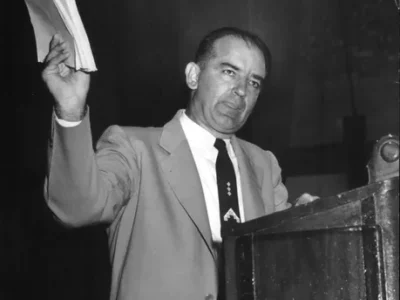California Pulls Back On Sustainable Aviation Fuels
Air Resources Board abruptly withdraws proposal to mandate low-carbon jet fuel
California regulators had an opportunity this year to be a global leader on requiring airplanes to use low-carbon jet fuel. But the Air Resources Board announced earlier this month that it will back off from its earlier proposal to require jet fuel providers to decarbonize, through the agency’s landmark low carbon fuel standard program.
Why the change? The agency’s official explanation was a head scratcher, noting that jet fuel suppliers could avoid having to actually provide low-carbon fuel to airplanes by buying credits from an entity with surplus credits to sell. But that is the whole point of this market-based program: regulated entities can either reduce the carbon in their products or pay someone else to do it. Either way, the mandate is in effect and the higher cost of carbon becomes a disincentive to pay to burn it.
So what’s really going on? The potential subtext of the agency’s decision (besides the political pressure from the aviation industry against any such mandate) is fear over lawsuits. Specifically, the airline industry has asserted that California is wholly preempted by various federal laws from mandating any sort of decarbonization of jet fuel.
But the industry overstates the risk of preemption, as a forthcoming CLEE legal analysis will document. There are three federal statutes at issue when it comes to aviation and federal preemption, which our report will detail. Despite their existence, California still has runway (ahem) to regulate jet fuel.
First, the Clean Air Act governs regulation of airplane engines and associated emissions. But in this case, California would not require airlines to change their engines or meet specific emissions standards. Instead, the low carbon fuel standard solely regulates the fuels as inputs. And when low-carbon biofuels blend with fossil jet fuel (the most common type of sustainable aviation fuel), no engine modifications are necessarily required.
Second, the Airline Deregulation Act prevents states and local governments from interfering with the national aviation market, if they take action “related to” prices, routes and services. A mandate for blending lower-carbon fuels into fossil jet is on its face not “related” to these specific economic features of a national aviation market. But if the fuels requirement became stringent enough to significantly affect the prices consumers pay or where airlines schedule refueling or routes, there is likely an outer limit to what California can require on fuels without risking preemption. As a result, the board would need to craft the regulation carefully to avoid these significant impacts.
Finally, the Federal Aviation Act could preempt state laws on jet fuel if the agency set forth national requirements for low-carbon jet fuel, but to date it has not yet finalized any such rule. And in that absence, California has leeway to regulate.
(And if you’re wondering about a separate potential challenge based on the “dormant” commerce clause of the U.S. constitution, where state action creates an unjustified and significant barrier to free trade among states, such a challenge to the low carbon fuel standard program was already rejected by the Ninth Circuit in 2019, with the US Supreme Court declining to review.)
Why does the Air Resources Board’s recent change in policy matter? Aviation is arguably the hardest-to-decarbonize sector in our economy, and policy could help jumpstart solutions. No single technology otherwise currently exists to cover all of our aviation needs in the long term, despite progress on batteries, hydrogen, and potentially “e-fuels,” which combine captured carbon with zero-emission hydrogen to create a synthetic, carbon-neutral fuel that can combust in current engines just like fossil fuel.
So in the short run, the Air Resources Board had an opportunity to require airlines to blend in more low-carbon biofuels with fossil jet fuel, lowering the carbon content while sending a clear policy signal to the industry that research and investment must begin now on these longer-term solutions. This is what Governor Newsom required when he directed the Board in 2022 to “adopt an aggressive 20% clean fuels target for the aviation sector.”
With its low carbon fuel standard, California is well positioned not just to offer more carrots to the airline industry to achieve these targets, but an actual stick to ensure compliance. At the same time, a legal pathway to achieve this goal and avoid preemption remains open, as our forthcoming report will discuss in more detail. Instead, by reversing course with this decision, the state now risks a delayed departure when it comes to more sustainable air travel.
Reader Comments
3 Replies to “California Pulls Back On Sustainable Aviation Fuels”
Comments are closed.







These ivory tower analyses of fuel policy that turn into adverts for SAF fail to incorporate real world facts about the emissions intensive processes necessary to make liquid biofuels like SAF from high deforestation risk commodities (i.e. making fuel from food). What we know is that making SAF takes even more inputs than making so – called ‘renewable diesel’ — that is lots more hydrogen and lots more feedstock. Making SAF is very inefficient and costly. There are lots of reasons to criticize the way CARB is avoiding addressing the climate impacts of aviation, or how they are managing the LCFS, and lots of reasons to criticize the LCFS itself, but the ongoing elevation of SAF as a means to ‘decarbonize’ aviation is simply out of touch with the real world. I highly recommend that Mr Elkind spend some time in the SF Bay Area refinery corridor and learn more about the realities of the conversion of refineries to making liquid biofuels — an issue that Cal Berkeley academics have largely avoided grappling with, even though it is right in their backyard and central to the current debate about the LCFS. A closer fact based look at the refining necessary for making these products reveals that SAF is not and never will be the solution that advocates make it out to be.
All the aviation Laws from Federal Aviation Administration was conservedly done to achieve certain Conservative agenda in full disregard of the climate Change Catastrophe. But we are not going back. Climate Change is real and US is the major contributor of it. if the Concerted effort can be pulled together without the political divide coupled with hoax and fiction, then US can be the major Contributor interms of the Policy formulation to combat Climate Change. But the political will which is very paramount in this endevour is indeed lacking for now
There are a number of misconceptions in these comments that can be addressed. HEFA (Hydroprocessed Esters & Fatty Oils) SAF is made mostly from Used Cooking Oil and Animal Fats, but also from soy oil and other seed oils. The oils are hydroprocessed into hydrocarbon fuels (Renewable Diesel and SAF jet fuel) then blended with conventional fuel to make compliant Jet A fuel suitable for use in aircraft. These fuels lower jet fuel Carbon Intensity (CI) by 40-60%. A step in the right direction, but limited by feedstocks availability.
Converting Agricultural Waste to Fuels (WtF) using gasification/Fischer-Tropsch synthesis opens up a major pathway to producing large volumes of very low CI fuel. Forest wastes from harvesting commercial forests for timber generates tons of waste from managing and harvesting forests for wood. This waste is left to rot on the forest floor contributing to insect damage and fire danger or is burnt in place contributing to air pollution.
WtF plants are incredibly low pollution plants meeting minor source emissions requirements while using what otherwise was a hazard and turning it into a useful product. Combining gasification of waste with CCS can yield a highly carbon negative SAF that will help airlines reach net zero goals easily.
Coupling CCS with waste to fuels production takes enough CO2 out of the air that one gallon of ultra-low CI SAF can be blended with 3 gal of conventional jet fuel and still yield a fuel with ZERO CI. That cannot be achieved without using waste feedstocks and CCS of process CO2.